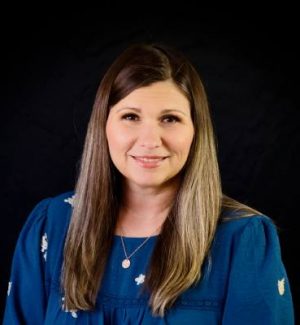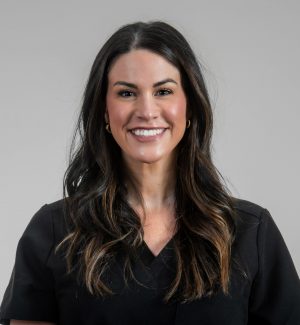Struggling with mental health can lead to dependence on drugs and alcohol or vice versa. By taking adequate care of one’s mental health, a person can build a strong base for a happier future. That is why we offer customized mental health treatment programs for clients struggling with addiction. So, if you or a loved one needs quality mental health treatment in Georgia, reach out to Serenity Grove as soon as possible.
At our family-owned center in Athens, GA, we have assembled a multi-disciplinary team comprising the best doctors, therapists, clinicians, nurses, and other experts to offer the highest quality care for all our clients. To find out more about mental health disorder treatment and other programs, call us at 844.904.3485.
Why We Offer Mental Health Treatment Programs
For a full recovery, we at Serenity Grove, believe in addressing every aspect of a client’s health—be it their physical health, mental health issues, past trauma, medical history, and general well-being. Consequently, mental health disorder treatment is an integral part of all our addiction recovery programs.
Thus, we offer mental health disorder treatment for the following reasons:
- Several studies have shown a direct link between addiction and mental health. As a result, we offer dual-diagnosis programs. In such a program, we address the physical symptoms of addiction along with co-occurring mental health issues.
- Moreover, by improving the client’s mental health, we can instill in them new hope, confidence, and resilience. Thus, they are motivated to play an active role in recovery.
- With the help of therapy, clients also learn to identify triggers and negative thought patterns. Later, they can replace them with healthier habits.
- By addressing common issues such as depression and anxiety, clients thus learn effective coping mechanisms to deal with different challenges.
- Better mental health also implies increased production of happy hormones like serotonin and dopamine. Consequently, this leads to clients feeling more energetic, productive, and optimistic.
Our Mental Health Treatment Programs in Georgia
Anxiety Disorders
Mood Disorders
Mood disorder treatment helps alleviate symptoms of a variety of depressive and manic disorders.
Depression
Bipolar Disorder
Postpartum Depression
PTSD
OCD
Schizophrenia
Borderline Personality
Borderline personality disorder (BPD) is a complex disorder that responds well to treatment.
Complicated Grief
If you’ve been unable to process grief for several months or years, our complicated grief treatment can help.
Suicidal Ideation
Suicidal ideation treatment will help you overcome this distressing symptom of mental health disorders.
Self-Harm
Self-harm treatment can help you overcome these behaviors and cope with their underlying causes.
How Do I Know I Need Mental Health Treatment?
Many people who need mental health treatment don’t get treatment due to stigma, costs, or other barriers.
However, some people might not realize they need treatment. Or, they feel like they can manage without professional help. Still, they could be at risk of a worsening mental illness or a diminished quality of life without treatment.
The following are signs that you need mental health treatment:
- Excessive worry, anxiety, fear, or sadness
- Difficulty concentrating and focusing on tasks
- Irritability and outbursts of anger
- Mood swings
- Loss of interest in hobbies
- Isolation and avoiding social activities
- Unexpected weight gain or loss
- Sleep disturbances (insomnia or sleeping too much)
- Medical issues with no physical cause
- Abusing drugs or alcohol to self-medicate for stress
- Self-harming behaviors (cutting, head-banging, burning oneself, etc)
- Suicidal ideations or behaviors
Nearly 1 in 5 US Adults Have a Mental Health Issue
According to Mental Health America, 19.86% of US adults experienced a mental illness in 2022. Therefore, mental health disorders are relatively common. So, if you have the previously mentioned signs, seek out mental health treatment today.
Our Mental Health Treatment Programs in Georgia
Detox Programs
Residential Treatment
PHP
IOP
Mental Health Statistics in Georgia
According to the National Alliance on Mental Illness (NAMI), in Georgia:
- 1,405,000 adults have a mental health condition
- 44.3% of adults reported symptoms of depression or anxiety in February 2021
- 336,000 adults have a serious mental illness (SMI)
- 1,569 lives were lost to suicide in the last year
- 314,000 adults had thoughts of suicide in the last year
Furthermore, of the adults with symptoms of depression or anxiety, 29.4% were unable to get the counseling they needed. In addition, of the 391,000 Georgians who needed mental health care, nearly half couldn’t get treatment due to cost.
That is why we work with several insurance providers to deliver high-quality, mental health to those who need it. You can verify your insurance today by reaching out to our admissions team.
How We Combat the Stigma of Mental Health
The stigma of mental health is another factor contributing to Georgians not seeking mental health treatment.
Stigma means other people see you in a negative way because you have a mental health disorder. For instance, they might consider it a personal failing or weakness. Oftentimes, this leads to stereotypes and discrimination.
At Serenity Grove, we combat mental health stigma in the following ways:
- Encouraging those who struggle to get the support they need
- Educating clients and their families about mental health disorders
- Focusing on strengths-based recovery
- Building peer support networks among the clients in our facilities
- Making treatment accessible and affordable
- Empowering clients to design a treatment plan that works for them
Our welcoming and inclusive environment also helps marginalized people like the LGBTQIA+ community. We also reach out to working professionals, who might worry about their careers due to mental health stigma. Furthermore, our treatment programs for young adults help clients at the beginning stages of mental illness for better long-term outcomes.
Lastly, our programs offer specialized treatment to first responders, firefighters, and veterans—as people in these groups often struggle with the stigma of seeking help for mental health disorders.
Therapies Utilized at Our Mental Health Program
At our mental health facilities in Georgia, we offer the following therapies:
- Individual Psychotherapy: One-on-one counseling during individual therapy can be transformative for those with mental health disorders.
- Psychiatry: Along with psychotherapy, psychiatry medications are among the most common ways to treat mental health disorders.
- Group Therapy: During group therapy, a therapist facilitates a discussion among peers with shared experiences and symptoms.
- Cognitive-Behavioral Therapy (CBT): CBT is one of the most commonly used therapeutic modalities to treat several mental health disorders.
- Dialectical Behavioral Therapy (DBT): Originally developed to treat symptoms of borderline personality disorder (BPD), DBT offers hope for individuals with a variety of mental health conditions.
- Family Counseling: During family therapy sessions, you and your family can repair broken relationships and build the necessary skills to maintain them.
- Trauma Treatment: Traumatic experiences are among the most common risk factors associated with developing a mental health disorder.
- Meditative Therapy: It’s important to develop coping skills, like meditation and mindfulness, when in recovery from a mental health or dual-diagnosis disorder.
- Yoga Therapy: Clients enjoy yoga therapy as a way to re-direct their focus from their mental health symptoms to living in the moment.
Meet Our Experts
Find Help and Healing at Serenity Grove
At Serenity Grove, we take every step to ensure that our clients receive intensive care, medical attention, and emotional support throughout the recovery process. Over the years, we have helped countless citizens overcome their addictions and rebuild their lives anew.
As a family-owned residential clinic, we specialize in end-to-end care services, guiding our clients through detox, residential care, outpatient treatment, and beyond. In fact, as part of our continuing care programs, our clients can enjoy lifelong support and access to quality healthcare resources.
It is never too late to seek help. So, call us at 844.904.3485 or visit our admissions page to begin your recovery journey today.




